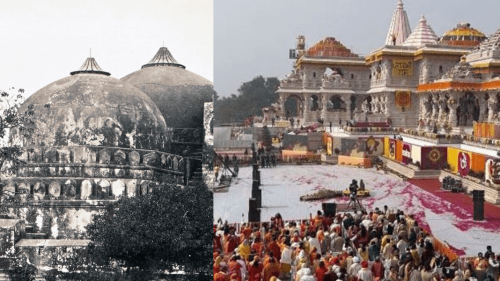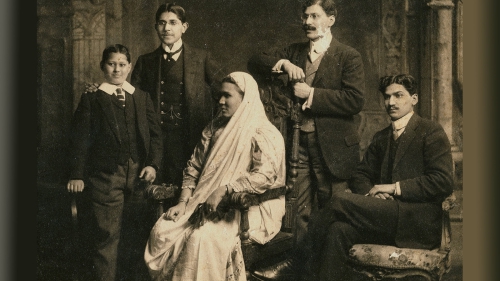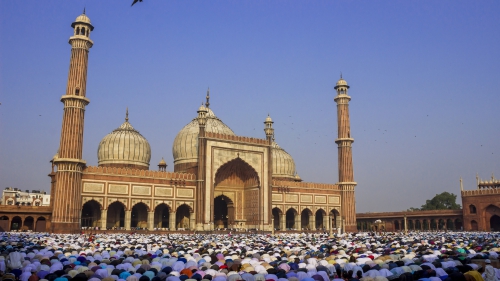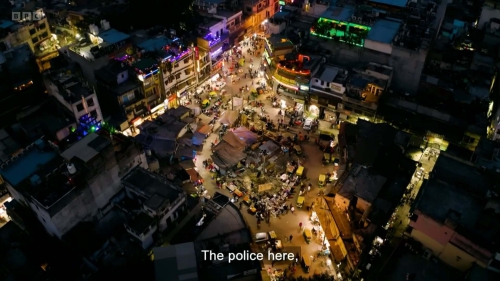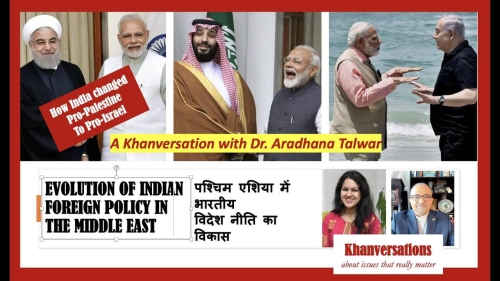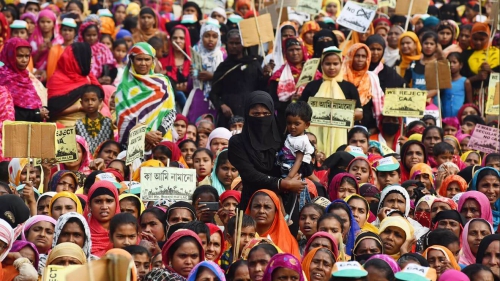Indian Muslims Striving for Empowerment
December 6, 1992 is etched in the consciousness of almost every Indian Muslim. This was the date a mosque built in 1528 was turned into rubble by frenzied Hindu mobs who claimed it was built on the site of an ancient temple in Ayodhya, India. Why would this be any different from the 7000 other mosques that have been destroyed, occupied or converted into temples in the more than 16,000 "communal" riots -- a euphemism for anti-Muslim pogroms -- since the 1947 Partition?
The difference is that this fateful Sunday symbolized a turning point in Hindu-Muslim dynamics. Prior to the destruction of the Babri Mosque, its defense had become a crucial issue for Indian Muslims; the security of their identity became intertwined with the fate of the Mosque. Its leveling and aftermath awakened them to the true state of their affairs. Moreover, this incident reinforced the growing ideological polarization of India.
However, this incident and its aftermath appear to have been a blessing in disguise as well. For the Muslim community may be finally getting its act together.
The Hindutva movement has long realized that it can’t simply push the 150-million Indian Muslims into Pakistan or Bangladesh; nor are its numbers conducive to wholesale extermination or "religious cleansing." This explains why their strategy -- since the partition -- has been to systematically weaken Muslims in the economic, educational and political arenas.
The institutionalized denial of equal opportunity and the destruction of Muslim economic infrastructures have had lasting impact on the community. Says Sajid Anjum, assistant editor of the Hindustan Daily, "The community philosophy became: Why should we build or pursue any ambitions when the next riot will destroy everything we worked for?"
The job of keeping down Muslims has not been a difficult task considering their educational, social, economic and political status to date.
According to the central government, in the field of education, Muslims along with Neo-Buddhists are the most underdeveloped communities in the country. This was confirmed by a private study conducted by the Gujarat Institute of Development Research (GIDR) released in December 1993. The study found that Muslims had the highest rate of illiteracy and only 2.3 percent of men had a college education while 8 percent of Christians and Hindus had attained this level.
But the situation is worse than the statistics suggest since a large percentage of Muslims with college educations are graduates of Islamic and/or Arabic colleges, with little, if any, training in modern subjects. In fact, according to the Institute of Objective Studies in New Delhi, only 54 of the 5,853 students enrolled at the Madras campus of the Indira Gandhi National Open University were Muslims. Even in terms of educational institution building, the community lags far behind with only 54 of the 3604 degree-granting colleges being managed by them according to an article in the Indian weekly, Radiance.
The situation in the economic arena is no better. The GIDR study found that more than 47 percent of Hindus are employed in regular wage occupations in organized sectors, while only 29 percent of Muslims are so employed. Their representations in most fields -- including law enforcement, government service and even military service -- are well below what their numbers should dictate.
Aside from conspicuous consumption there is also an emphasis on short-term gain. In fact, an Indian Muslim entrepreneur once told me of his experience in trying to raise capital among expatriates in the Middle East for a new high tech industry in India. After much initial interest, he was dumbfounded to be repeatedly asked what rate of return he could guarantee on a monthly basis. Needless to say, the entrepreneur was unable to raise the capital and left India to pursue a successful engineering career in North America.
The state of Muslim women is perhaps the most deplorable of all. The illiteracy rate among them, according to a survey carried out last year by the All India Muslim Majlis-e-Shoora, was 70 percent nationwide and as high as 90 percent in some regions. And this shameful situation does not help the other problems facing them, including high divorce rates and poor domestic treatment.
During the Toronto stop on a speaking tour of North America, board members of the renowned, South India-based Al-Ameen Educational Society said that a lot of the blame for the deplorable state of Muslims in India rests squarely on the shoulders of Indian Muslims themselves; more specifically on the failure of the traditional Indian Muslim leadership which has ignored the real issues facing the community for too long. The emphasis on petty politics and marginal issues rather than on uniting around the common issues has cost the community greatly. But at last it seems that the situation is changing.
The Babri Mosque destruction and fallout has forced many to acknowledge that they can no longer continue to vacillate between the existing rigid conservative traditional leadership and the Secularists who see no role for religion. It is becoming increasingly clear that the only solution lies in the emergence of new leadership that will balance the needs of the community. Their work is cut out for them.
Anjum, who is on an exchange with the Toronto Star, says that Muslims have gained a little bit more confidence over the past seven years and have learned from their experiences. He notes that many Hindus are also concerned about spiraling violence and are now speaking out against communalism.
More importantly, Anjum says that the community learned from the Babri Mosque incident that no single party can be relied upon to look out for Muslims. In fact, the destruction took place under the nose of a Congress government in Delhi and a BJP state government. The state government had given assurances that the structure would be protected. Moreover, the Congress also ruled over the state of Maharashtra where the largest massacres of Muslims occurred after the demolition.
The Muslim vote bank is crucial to any party that wishes to gain power. Both the community and politicians of all persuasions -- including those of the Hindu-chauvinist Bharatiya Janata Party (BJP) -- are aware of this. In fact, Anjum says that Muslims are now setting up the mechanisms needed to bargain with politicians in a strategic and regional manner as opposed to voting as a block for one single party at the national or state level. Hopefully, the leadership will think of the long-term interests of the whole community in utilizing this tool.
The international Muslim community also has a role in uplifting their fellow Muslims. This assistance can include financial and political help. Groups such as the American Federation of Muslims from Indian, the Association of Indian Muslims of America and the Indian Muslim Relief Committee of the Islamic Society of North America are doing yeoman work and should be supported.
The ways to help can be many, but the manner must be well thought out. As A.M.S. Abdul Moghni, a respected Indian Muslim leader, advised in a letter shortly after the demolition of the Babri Mosque: "The Indian Muslims must themselves be enabled and supported to work for the betterment of the community as well as the country. Mere propaganda from outside and clandestine help to some self-seekers would not do, rather may harm the community."






